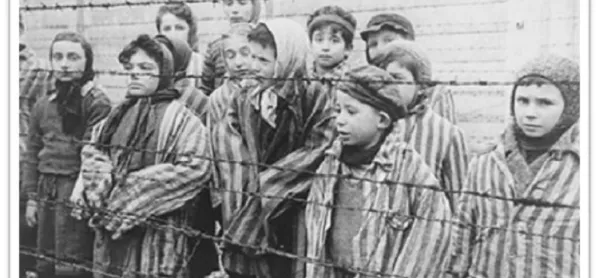The Holocaust has been on the national curriculum in England for key stage 3 history since 1991. In the years since, teachers have grappled with how to teach this most challenging subject - how do you communicate the mass murder of 6 million men, women and children, from all different backgrounds, sent to imprisonment and death across Europe, in just a few hours?
We work with more than 2,000 teachers a year, who regularly tell us that the Holocaust is a subject like no other. They feel a sense of responsibility to get it right especially as some of those who experienced it in all its horror are still able to give their first-hand account. This immediacy makes it all the more important that students understand both the historical facts and the human face of this period. Finding new ways to support teachers has led to a number of developments since the Holocaust Educational Trust was founded in 1988.
In a world where there are increasing amounts of inaccurate information, our online teaching resources offer clear, age-appropriate and reliable information and teaching plans to support teachers. Last year, to mark the 70th anniversary of the end of Holocaust, we created the 70 Voices: victims, perpetrators and bystanders app, which shared 70 personal accounts of the Holocaust from victims, survivors, perpetrators and other witnesses.
Our latest initiative was inspired by a letter written by a student to Rudi Oppenheimer who, alongside his brother and sister, survived Bergen-Belsen, and who visited an Essex Academy last year as part of our Outreach Programme. After sharing his testimony, many of the students were moved to write to Rudi. A line from a student called Olivia particularly struck a chord. She wrote: “It would be nice if you could record your voice and put it on your PowerPoint to show children in many years to come. They would be so interested, like our school was today.”
In the past year alone, Rudi had this kind of impact on almost 11,000 students. He is one of dozens of elderly Holocaust survivors who spend their days travelling the length and breadth of the country, speaking with more than 100,000 students a year, helping them to understand the Holocaust in a new way, taking it out of the textbook to engage them with the human stories.
Olivia understood that survivors like Rudi won’t be here forever. There won’t always be a chance for students to hear their testimonies and to feel the same connection to the events of the Holocaust. It is vital that organisations like the Holocaust Educational Trust, and teachers across the country, consider new and innovative ways to teach about this subject. We must ensure that it remains engaging and interesting, while making sure that students understand the wider historical context. The where, when, how and why should not be remote from the human experience.
That is why we harnessed new technology to ensure that Rudi’s story could be heard by as many people as possible this Holocaust Memorial Day. At 10am last Wednesday we hosted the UK’s first-ever live streaming of Rudi’s testimony, and every school in the UK was invited to join us. Students in classrooms from London to Cornwall, to Aberdeen, to Carlisle and Cardiff, and everywhere in between, were able to watch Rudi’s testimony. And now we are sharing the video (see above).
When Rudi first started speaking in schools in the 1990s, he could never have imagined that he would be being broadcast live into classrooms around the country. But this technology can only enhance what Rudi and other survivors, and dedicated teachers, have been doing in classrooms across the country for many years. All teachers need is an internet connection, a computer and a screen.
Last Wednesday, for the first time, Rudi was heard simultaneously in hundreds of schools. The reality is that these challenges in teaching about the Holocaust will continue to grow as we move from living history to just history. This online video is the first step in considering the future of educating students on this episode in history - and the first step in harnessing the power of technology to ensure it is never forgotten.
I hope that Olivia, who wanted Rudi’s voice put into his PowerPoint for other students to hear, knows what a great idea she had.
Karen Pollock MBE is chief executive of the Holocaust Educational Trust
Want to keep up with the latest education news and opinion? Follow TES on Twitter and like TES on Facebook

